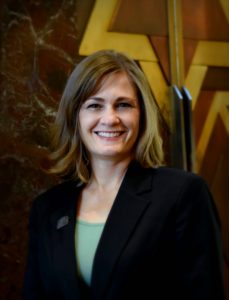by Vered Harris
How many times have we walked into a room of strangers and felt like this was the non-verbal message being sent to newcomers? The Rotary Four-Way Test sets the expectation that our club will be a place to “build goodwill and better friendships.” One of our goals for guests is that they experience:
Private?
No!
Strangers
Allowed!
We see this at Club 29 meetings when we encounter the greeters at the front door, the badge scanners, the club member who hands a plate to the next person in line, the friendly welcome at a table of strangers, and the camaraderie in the room. For generations the leaders of our club have worked to build a culture where those who come through the door feel encouraged to come back and get involved.
I am one of the Rotarians who does not have perfect attendance, spends very little time outside of Tuesday afternoons thinking about Rotary, and yet I can see that the ethics of Rotary influence my worldview. On the one hand the Four-Way Test is consistent with the religious teachings I follow and therefore it makes sense that I see the test play out in my daily decisions. On the other hand, it is beneficial to be reminded through the Four-Way Test that one need not have an ethical religious tradition to choose to live within and build up a moral culture.
The Four-Way Test is devised to be non-partisan and non-sectarian. It sets an expectation that anyone willing to abide by the four points is welcome in Rotary. For a time we recited the Four-Way Test in the beginning of our meetings. While we no longer do this, I personally appreciated the weekly reminder of the ethics that bind us together as club members. Of the things we think, say, or do:
Is it the truth?
Is it fair to all concerned?
Will it build goodwill and better friendships?
Will it be beneficial to all concerned?
As a religious minority I have occasionally spoken to our Club leadership when a prayer violates one or more of these principles. For instance, religious beliefs are not objective truths. In my religious tradition, the word “amen” is an acronym that translates into English as “God is a faithful Sovereign.” To say “amen” to a prayer that reaches outside of my theology is a transgression. One might see the conflict between the Four-Way Test and sectarian prayer. When I have offered what I hope are universalist prayers at our club meetings I have felt grateful to the people who are atheist, agnostic, or belong to a different religion than mine who have sought me out to thank me for giving them space to be included in a moment of prayer.
I believe this is an important ethical charge: Welcome strangers, maintain your unique identity, and build a culture where together we seek truth, fairness, friendship, and a beneficial environment for everyone who wants to work together in the pursuit of a better world.


Instead of saying “amen”, I say “so be it” or “so it is”!